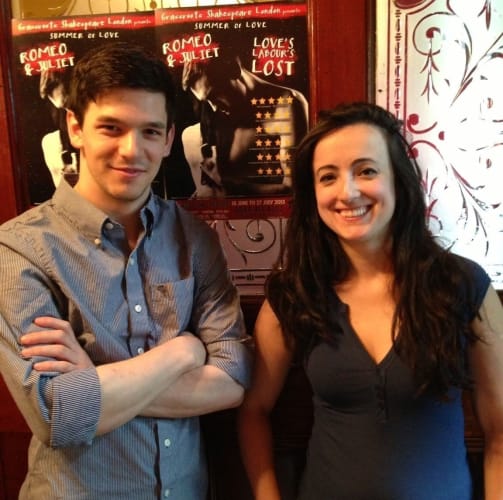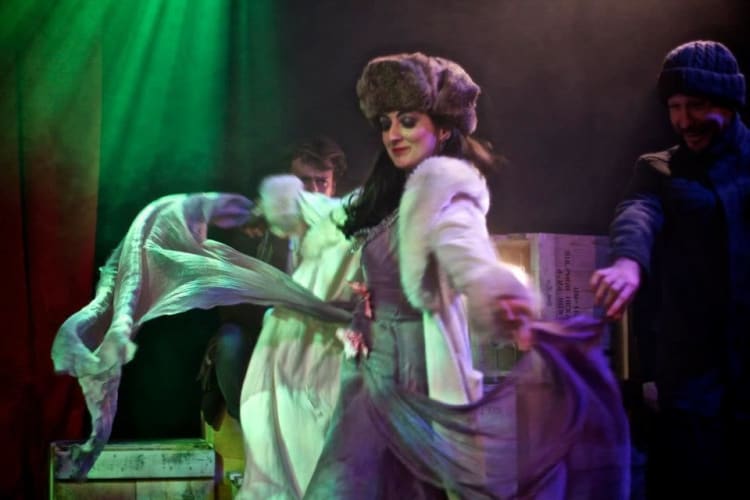Assembling a team
As Executive Producer and Artistic Director Siobhan does make many of the initial decisions, in consultation with colleagues Assistant Artistic Director Boris Mitkov and Dramaturge Lauren Amy Parkes. It is they who decide upon the play and chose the company, Lauren making a major contribution to decisions regarding choices between variant texts and the need for cuts. Of course, they will have their own ideas about the play but there is no attempt to fix an approach until the company is assembled.
There is no shortage of applications to join the company—as many as 600 for each season—and Siobhan reads them all before selecting a shortlist or people who are put through three rounds of auditions.
In choosing the final twelve talent is, of course, the foremost requirement but almost as important is the ability to work as part of a team, sharing creative input and responsive to the ideas of others. If someone thinks they are always right, can’t deal with criticism from others or work as part of a team there will be problems.
These aren’t just auditions where the actors do a speech and are judged on it. They are more like workshops, with the actor given feedback. It helps to see how they take constructive criticism—and of course, auditioning together gives a chance to see how they work as a team. Perhaps also work at this point will influence on their approach to a character if cast.
At first, however, this is not a matter of casting roles, though inevitably some people by personality or performance may seem an obvious choice for a particular character. What has become apparent is that, though versatility is valuable, each company seems to have had a very similar mixture of different types of people, suggesting the way in which actors used to be known for a certain “line of business”.
Both Siobhan and Boris have appeared in the company’s shows but they have auditioned along with the others. They need to fit in with the others, not be the management. Now that they have put on a number of productions their aim is to build up a regular company working together.
On a fringe budget they don’t operate on standard contracts but have run Grassroots as a profit share and are currently offering a set weekly fee. That means actors have to be very committed to wanting to do this work. There is no time or tolerance for time-wasters; other members of the company would not put up with it.
That’s not to say that they have never made mistakes and found ourselves with someone who is oblivious to the advice of others, which does cause problems, but Siobhan feels they are learning all the time how better to recognize the kind of talent which they need.
When a decision has been reached on who is to be invited to join the company, casting offers can be made—and here decisions are made gender blind. Grassroots wants to create opportunities for actors and women don’t have enough parts in Shakespeare.
When casting has been decided, the actors can go away to do their own work on the play and their own roles. An intelligent reading of Shakespeare’s text and a response to his verse is an excellent guide for any actor. They come to rehearsal knowing their lines and bringing their own ideas—not just for their own performance.

